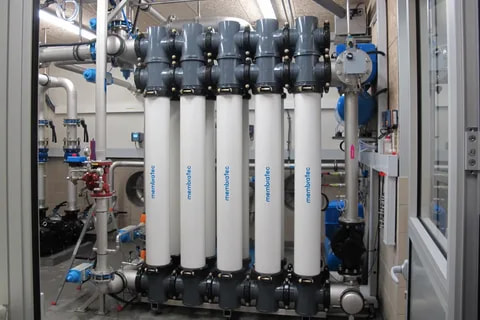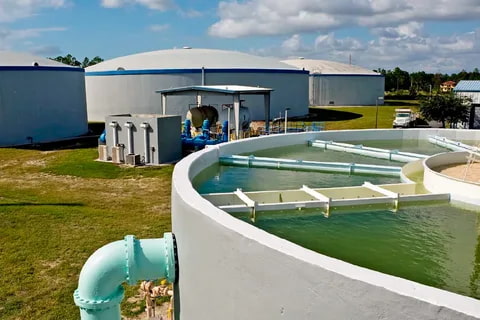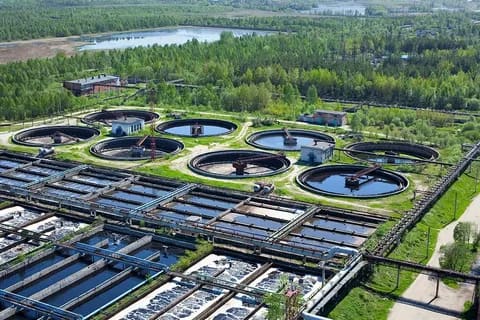What does industrial wastewater mean in the water purification process?
Of course, we know the meaning of wastewater in process of water purification, but do you know what does this term mean in an industrial environment? If your answer is negative, then stay with us in the present article.
water purifier machine
What is meant by the term "industrial wastewater"?
Wastewater Produced by Industry
Industrial wastewater is not just a by-product of companies that manufacture oil and gas, mining, or chemical products; it is also a by-product of industries that process food and beverages and is an essential component in the production of the clothes on your back, the shoes on your feet, the computer you use, and the vehicle you drive.
To remain in compliance with the rules that are now in place, it is necessary to control any organic or inorganic contaminants that may be present in the water that is utilized in industrial operations.
Before the wastewater can be properly released back onto the land, into bodies of water, or utilized in plant operations, it must be treated to remove any organic matter, metals, and other contaminants that may be present in the water.
Which Industries Generate Wastewater in the Industrial Setting?
Just a few instances include the following:
Finishers of Metals
The waste that is commonly generated during the process of metal finishing is a slurry or sludge that contains metals that have been dissolved in liquid.
Sludge containing metal hydroxides such as ferric hydroxides, magnesium hydroxides, nickel hydroxides, zinc hydroxides, copper hydroxides, and aluminum hydroxides is produced in large quantities during the metal plating, metal finishing, and printed circuit board (PCB) manufacturing processes.
These processes result in the production of a lot of sludge.
Effluent from metal finishing must be treated so that it complies with all current standards.
This is necessary since the wastewater is harmful to both people and animals as well as the environment.
Industrial Laundries
The commercial textile services industry processes approximately 15 billion pounds of laundry each year.
The wastewater generated from items such as uniforms, towels, floor mats, and other similar items contains oil and grease, lint, sand, grit, heavy metals, and volatile organic compounds, all of which need to be treated before the wastewater can be released.

water purifier service
Industrial Production of Chemicals
When it comes to the treatment of their wastewater effluents, chemical businesses are faced with significant environmental regulatory problems.
Conventional pollutants such as oil and grease, as well as suspended particles, and other pollutants such as ammonia, chromium, phenols, and sulfides are among the pollutants that are discharged in petroleum refineries and petrochemical facilities.
Mining
After the extraction of the mineral concentrate, which might be gold or silver, mining operations are left with mine tailings, which are a mixture of water and finely powdered rock that is left over from the mining process.
The appropriate management of mine tailings is one of the most significant challenges that mining firms must face.
The tailings are a substantial financial problem and an opportunity to reduce the costs of transportation and disposal, in addition to being an environmental liability that must be managed.
The requirement for tailing ponds can be eradicated if appropriate treatment systems are implemented.
Production of Steel and Iron
To facilitate cooling and the separation of by-products, the manufacture of iron and steel makes use of water.
During the first stage of the conversion, it may get polluted by byproducts such as ammonia and cyanide.
The following compounds can be found in waste streams: benzene, naphthalene, anthracene, phenols, and cresols.
Iron and steel must be formed into sheets, wire, or rods using water as the primary lubricant and coolant.
Additionally, hydraulic oils tallow and particulate particles must be used in this process.
To galvanize steel, the water must first be treated with hydrochloric acid and then sulfuric acid.
Together with waste acid, acidic rinse water is included in the category of wastewater.
The wastewater from the steel sector is often polluted by hydraulic oil, which is also known as soluble oil.
Fracturing for Oil and Gas
The drilling for shale gas produces wastewater that is considered to be hazardous waste.
It has a sodium content of 32,300 mg per liter, which indicates that it is extremely salty.

water purifier filter
In addition, the water that was mixed with industrial chemicals and then injected into the well to make drilling easier contained high concentrations of a variety of substances, including methanol, chloride, sulfate, sodium, magnesium, iron, barium, strontium, manganese, chloride, and barium.
During drilling operations, naturally occurring radioactive materials (also known as "NORM" in the industry) have the potential to rise to the surface with the water.
It is possible for the water used in hydraulic fracturing to include hydrocarbons, including potentially harmful chemicals such as benzene, toluene, ethylbenzene, and xylene that may be released during drilling operations.
Power Plants
Power plants that burn fossil fuels, and in particular coal, are a significant contributor to the wastewater produced by industrial processes.
The wastewater that is discharged from many of these facilities contains considerable quantities of metals such as lead, mercury, cadmium, and chromium, in addition to arsenic, selenium, and nitrogen compounds (nitrates and nitrites).
The majority of the time, plants that have air pollution controls such as wet scrubbers will discharge the pollutants that they have absorbed into the wastewater stream.
Treatment Facilities for Water and Wastewater
Wastes that include various possible toxins are produced as a by-product of wastewater treatment plants, which is an ironic outcome of this process.
Even reclaimed water that has been cleaned with chlorine may still include by-products of the disinfectant, such as trihalomethanes and haloacetic acids.
The solid residues that are left behind from the treatment of wastewater are known as biosolids.
These biosolids contain typical fertilizers, but they also have the potential to contain heavy metals and synthetic organic chemicals that are present in everyday home goods.
The Processing of Food
It is necessary to handle the herbicides, insecticides, animal manure, and fertilizers that can be found in concentrations in wastewater from food and farm production.
When food is processed from its raw ingredients, the waters that are left over get contaminated with large concentrations of particulate matter, as well as soluble organic discharge and chemicals.
Organic waste from animal slaughter and processing, bodily fluid, intestinal matter, and blood are all sources of pollutants in water that need to be cleaned.
These contaminants come from different parts of the body.
How Should We Handle the Wastewater from Industry?
Filter presses are an essential component of the on-site solution for treating industrial wastewater and effluent wastewater in a wide variety of industries, only a few of which have been mentioned here.
This includes the food processing industry, the pharmaceutical industry, and the chemical industry.
There are a great number of other industrial uses for filter presses in the treatment of wastewater.
To dewater their sludge in a manner that is compliant with EPA, state, and municipal standards, firms may use cutting-edge technology found in industrial filter presses to achieve both efficiency and effectiveness.
It is possible to tailor filter presses, as well as filter plates and filter cloth, to meet the specifications of a given industry.
Making the right choice when purchasing a filter press is essential to maximizing the efficiency of press operations and producing high-quality, dry filter cakes that can be discarded at a low cost.
Manufacturing firms can fulfill their wastewater objectives, such as reducing their negative impact on the environment and reusing or preserving valuable water resources, with the help of a filter press system that has been correctly developed and constructed.

How useful is this article to you?
Average Score
5
/
Number of votes:
1



